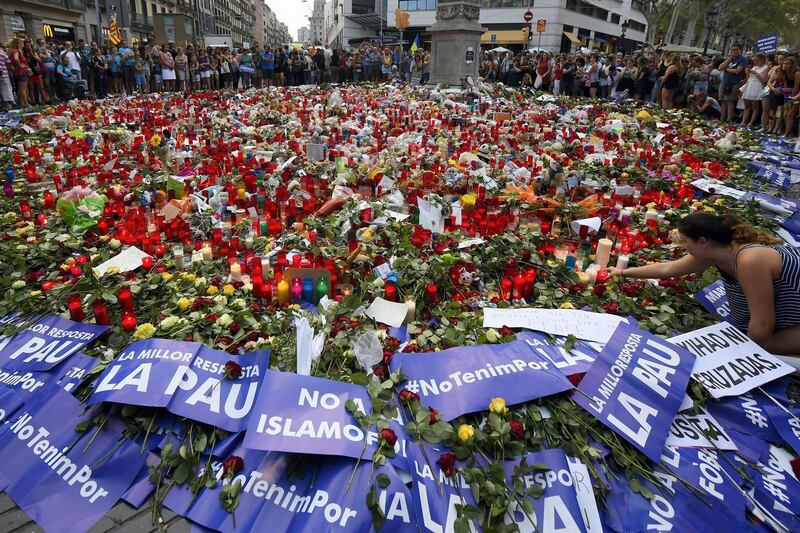Two-thirds of Islamist extremist attacks on western targets were carried out by foreign-born terrorists in 2017 despite government fears of an increased threat from homegrown radicals and returning fighters from Syria, according to a report published on Wednesday.
An analysis of 122 terrorist attacks committed in 2016 and 2017 highlighted the changing nature of modern terrorism with a slight decline in the number of plots connected to ISIS but a rise in attacks by far-right groups.
Some 280 people were killed and nearly 2,000 injured in western democracies with the UK, US and France bearing the brunt of violence over the two years. The report by the London-based Henry Jackson Society – Terrorism in the West: an age of extremes - showed that 84 per cent of deaths were attributed to Islamist attacks.
The role of overseas-born fighters in Islamist attacks – up from 40 per cent in 2016 – was in part caused by failures of social integration, poor border security checks and failures of intelligence, according to the report’s author, Tom Wilson.
___________________
Read more:
[ Up to 80 ISIS widows to return to Britain ]
[ British counter-terror chief warns against far-right threat ]
___________________
He highlighted the role of Moroccan-born terrorists in the 2017 attacks in Barcelona and nearby Cambrils that left 16 dead when pedestrians were mown down by a van driven by a member of the gang on the famous La Rambla thoroughfare. Many of those involved in the plot had lived in Spain for years.
In contrast, an Iraqi teenager who left a homemade bomb on a London underground train in 2017 had only claimed asylum in the UK the previous year when he claimed that he had been trained to kill by ISIS.
“A few came simply as terrorists but for the sole purposes of terrorism,” he said highlighting a machete attack by an Egyptian national on a soldier outside the Louvre art museum in Paris. The attacker had travelled to France on a tourist visa.
The data showed that the number of attacks by far-left and far-right terrorist groups almost reached the levels of Islamist-inspired groups in 2017.
The sharp uptick of far-right activity – predominantly in the United States – appeared to correspond with online activity that has sought to harness issues such as the migrant crisis and terrorism to stoke tensions within western societies.
“Given the volume and tone of this content, it is not surprising that we are now seeing an increase in violence,” said Mr Wilson.






